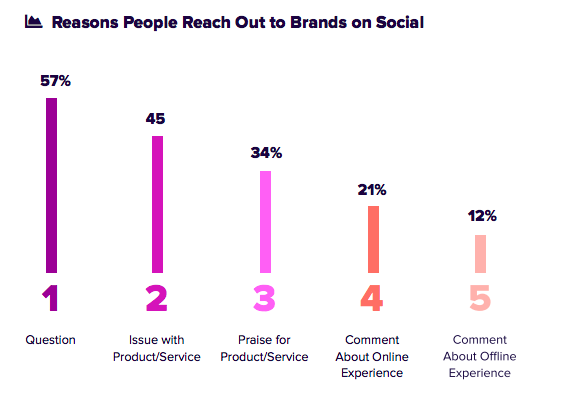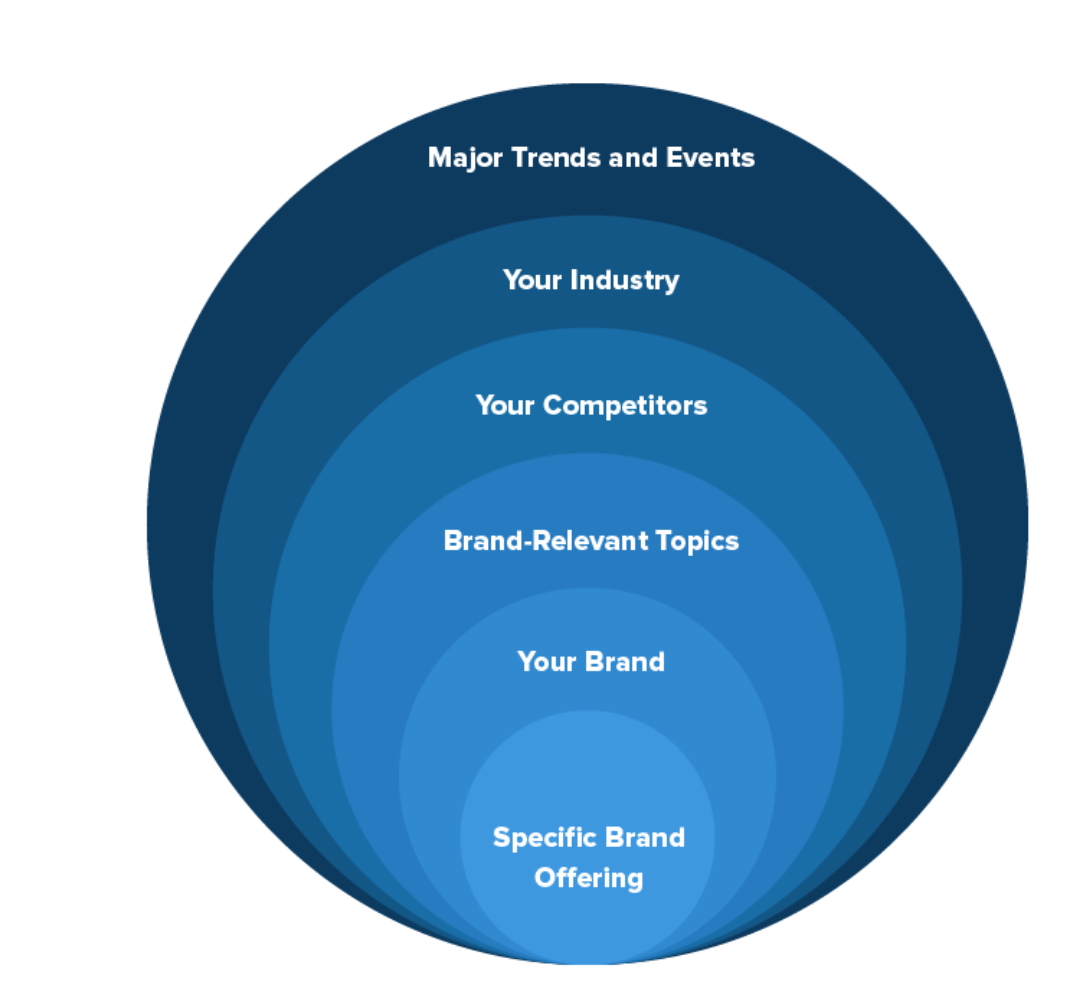The following article by Jenn Chenn of SproutSocial elucidates the importance of the social listening practice and why it’s an important tool that you need in your marketing tool box. Just using social media to promote your business short changes the true power potential social media has, and the benefits you can reap from it. Utilizing all appropriate social media listening tools will help your brand improve in many different ways, including product development and industry tracking.
Social monitoring is the tracking of keywords and phrases relevant to your brand. It’s likely you’re already doing this and responding in real-time to public comments. Social listening takes it a step further by looking at your monitoring with a birds’ eye view and analyzing all the data. This combination is utilized by companies around the world and isn’t limited by the size of the company. In fact, smaller companies may find it easier to execute social listening since the online conversation isn’t as difficult to track.
In this guide, we’ll review the benefits of social listening, specifically on Twitter, and how you can execute this for your own company.
- Value of social listening on Twitter
- Using Twitter listening tools
- Taking action from Twitter listening
For an overview on social listening, check out our social listening guide and our article on the ROI of listening.
Value of social hearing on Twitter
Tweets is a prime platform for interpersonal listening. Its users are active, socially aware and aren’ t scared to speak up when they’ re unhappy with a company or even product.
In the 2018 Sprout Social Index, we found that 57% of customers who reach out to brands have a question and 45% have an issue with the product/service.
But what about those who don’t mention the brands at all or are merely discussing general trends in the industry? Social listening picks up on these trends and informs your company’s next steps.

Listening is not limited to only your brand. It includes everything from your competitors to major discussion points on Twitter. For example, your hotel might need to drive up interest in a certain city. By listening in on geographic micro-influencer conversations, you’ll glean tips on the best new restaurants and shops nearby. You’ll also be able to use listening to find new influencers.
In a 2017 survey, Clutch found that 25% of business use social listening to improve their products, 24% for attracting customers and 21% for providing better customer service.
One thing to keep in mind as you explore social listening is that each network is different and that social listening is only a slice of the overall listening pie. Other listening channel options include tracking press articles, forum discussions and review sites. As you begin listening, you’ll learn how your customers and competitors utilize each network. Twitter may be used more for customer service while Facebook is for recommendations.
But you won’t know anything if you don’t put get your social listening strategy in place.

Using Twitter listening tools
To execute Twitter listening at a basic level, you need to determine what types of terms you want to search Tweets for. Twitter allows you to save searches and a tool like Sprout has built-in listening features.
However, it can be difficult to keep track of searches for every term you need to stay on top of, even for a relatively simple topic or query. Imagine you own and run a restaurant. Let’s say that it’s in Sprout Social’s home city of Chicago and, unsurprisingly, is focused on selling pizza.
With social media listening you can create specific queries that will track almost every variation of Chicago pizza. Below is a simple query that would start to pull these insights for you.
Instead of individually searching each term, you can keep a pulse on conversations, sentiment and themes around:
- Chicago pizza
- Chi-town pizza
- Chicago deep dish
Then, once your social listening query is at work you can discover new trends. You’ll be better equipped to answer questions like:
- Are there new flavors Chicagoans crave?
- Are there under-served locations we can branch out to?
Are we really better than New York slices?
Conclusion
Including social monitoring and listening in your marketing efforts will enhance your overall brand strategy. Utilizing Twitter’s search parameters with a robust social listening tool helps you distill information into actionable items.
To execute social listening well, you need to first understand its value for your brand, then set up an effective listening tool and finally, look at the overall data. Social listening is a constant task that requires active tweaking of parameters and an analytical mind. Twitter is a powerful source of real-time reactions that allows brands to see how new product campaigns are performing as well as track what the hottest industry topics are.


